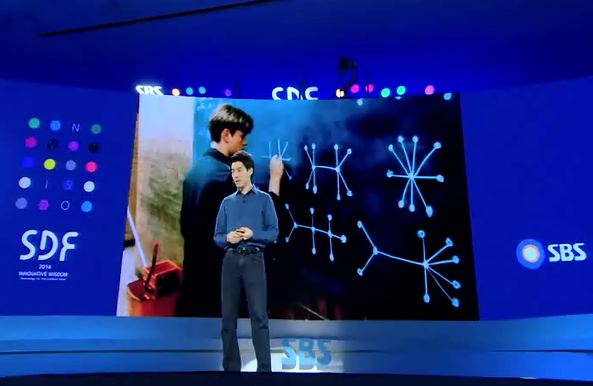< 무뢰한 >은 준길과 재곤이 혜경이 벌이는 애증과 배신의 이야기를 다룬영화다. 이 영화는 나쁜 남자와 착한 여자가 사랑을 하는 상이한 방식을 대조하는 것처럼 보인다. 하지만 사랑을...
http://chineseinput.net/에서 pinyin(병음)방식으로 중국어를 변환할 수 있습니다.
변환된 중국어를 복사하여 사용하시면 됩니다.
- 中文 을 입력하시려면 zhongwen을 입력하시고 space를누르시면됩니다.
- 北京 을 입력하시려면 beijing을 입력하시고 space를 누르시면 됩니다.

1. 기획논문: "한국영화 7선" 2015년 한국영화를 말하다 : < 무뢰한 >, 혹은 위악의 미궁 = The Shameless, or the Labyrinth of Pseudo-malignancy
한글로보기https://www.riss.kr/link?id=A101831832
- 저자
- 발행기관
- 학술지명
- 권호사항
-
발행연도
2016
-
작성언어
Korean
-
주제어
< 무뢰한 > ; 악 ; 위선 ; 초월 ; 희생 ; 한나 아렌트 ; 테리 이글턴 ; 자크 라캉 ; The Shameless ; Evil ; Hypocrisy ; Transcendence ; Sacrifice ; Hannah Arendt ; TerryEagleton ; Jacques Lacan
-
KDC
688
-
등재정보
KCI등재
-
자료형태
학술저널
-
수록면
85-105(21쪽)
- DOI식별코드
- 제공처
-
0
상세조회 -
0
다운로드
부가정보
국문 초록 (Abstract)
< 무뢰한 >은 준길과 재곤이 혜경이 벌이는 애증과 배신의 이야기를 다룬영화다. 이 영화는 나쁜 남자와 착한 여자가 사랑을 하는 상이한 방식을 대조하는 것처럼 보인다. 하지만 사랑을 부인하는 말과 달리 혜경을 지켜주는 행동을 보여주는 재곤의 심리기제는 ‘위악’이라는 개념으로 접근해야만 이해할 수 있다. 여기서 위악이란 아렌트의 위선 개념을 뒤집은 것이다. 즉 행위자가 자기 내부의 목격자를 속이고 악한 존재로 나타나고자 한다는 것이다. 그 이유는 근대 이후 악은 개인이 순수한 자율성을 꿈꿀 수 있게 해줄 초월의 형식이 되었기 때문이다(테리 이글턴). 이러한 악은 사랑과 반대되는 배타성과 허무주의로 나타난다. <무뢰한>은 1:38의 화면비, 느와르 양식의 도시풍경 속에 ‘배신’에 대한 두려움을 공유하는 남자들의 세계를 펼쳐놓으며 그속에서 재곤과 혜경을 상반된 방식으로 묘사한다. 재곤과 달리 혜경은 자신을 희생함으로써 사랑에 충실한 모습으로 나타난다. 그러나 정신분석적으로 보면 희생이란 거세로 인해 생겨난 결여를 부인하고 감추어진 보물을 가진양 행동함으로써 사랑받을 만한 가치가 있는 대상이 되기 위한 전략이다. 그런 의미에서 재곤의 위악과 혜경의 희생은 궁극적으로 사랑을 성취할 수 없는 비극적 전략이다. ‘악의 평범성’이 강조되고 있는 2015년, 헬조선이라 불리는 참혹한 현실 속에서 이 영화는 위악적 인물들의 내적 순수성을 역설적으로 드러낸다.
다국어 초록 (Multilingual Abstract)
The Shameless is all about the story of Jungil, Jaegon and Haegyung’s love-hate relationships and their mutual betrayals. It seems that this film compares the bad guys and the good girl and their different attitudes toward love. However, Jaegon’s ...
The Shameless is all about the story of Jungil, Jaegon and Haegyung’s love-hate relationships and their mutual betrayals. It seems that this film compares the bad guys and the good girl and their different attitudes toward love. However, Jaegon’s psychic mechanism should be approached from the viewpoint of ‘pseudo-malignancy’ because his disavowal of love is contradictory with his actions of care and protection. Here, the concept of pseudo-malignancy, which means the agent appears to be malicious deceiving the inner onlooker, is an inverted application of hypocrisy elaborated by H. Arendt. Since the modern era, the evil becomes a form of transcendence which guarantees the dream of pure autonomy (T. Eagleton). The evil appears as the exclusiveness and nihilism. The Shameless unpacks the world of guys who share the anxiety and fear of betrayal with its stuffy proportion of 1:1.38 and the noire-style city landscapes. In this film, Jaegon and Haekyung are described as contrary in their characters: Haekyung is very sacrificial and faithful to love. However, J. Lacan explains that sacrifice is a strategy to become a worthy object of love in the disavowal of lack caused by the castration. One can sacrifice what he/she actually doesn’t have, the hidden treasure (agalma) desired by the partner. In that sense, Jaegon’s pseudo-malignancy and Haekyung’s sacrifice is just a tragic gesture leading to the failure of love. In 2015’s Korea with its nickname of Hell-Chosun where the banality of evil is focused on, this film seems to succeed in exposing the paradox of inner purity of the pseudo-malignant characters, even though they say that they do not become of today’s life-style, which is just evil.
동일학술지(권/호) 다른 논문
-
1. 기획논문: "한국영화 7선" 2015년 한국영화를 말하다 : < 지금은맞고그때는틀리다 >의 반복된 시간
- 한양대학교 현대영화연구소
- 이지현 ( Ji Hyun Lee )
- 2016
- KCI등재
-
1. 기획논문: "한국영화 7선" 2015년 한국영화를 말하다 : "지식,권력,존재"의 역사적비화(悲話): 영화 < 사도 >
- 한양대학교 현대영화연구소
- 한영현 ( Young Hyun Han )
- 2016
- KCI등재
-
1. 기획논문: "한국영화 7선" 2015년 한국영화를 말하다 : 성실의 역설 그리고 분열증 -< 성실한 나라의 앨리스 >-
- 한양대학교 현대영화연구소
- 조혜정 ( Hye Jung Cho )
- 2016
- KCI등재
-
1. 기획논문: "한국영화 7선" 2015년 한국영화를 말하다 : < 내부자들: 디 오리지널 >, 범죄영화장르의 진화와 폭력의 서사화 방식
- 한양대학교 현대영화연구소
- 정민아 ( Min Ah Jeong )
- 2016
- KCI등재




 KCI
KCI KISS
KISS





